Adjective Clause – Definition, Types, Usage & Examples
What Is an Adjective Clause?
Adjective clause is also known as a relative clause. It is a group of words that functions like an adjective in a sentence. It’s a type of dependent clause. It is like an adjective. It provides more information about a noun or pronoun. Adjective clauses are sometimes called relative clauses.
Here are some common definitions of adjective clause.
Definition of an Adjective Clause
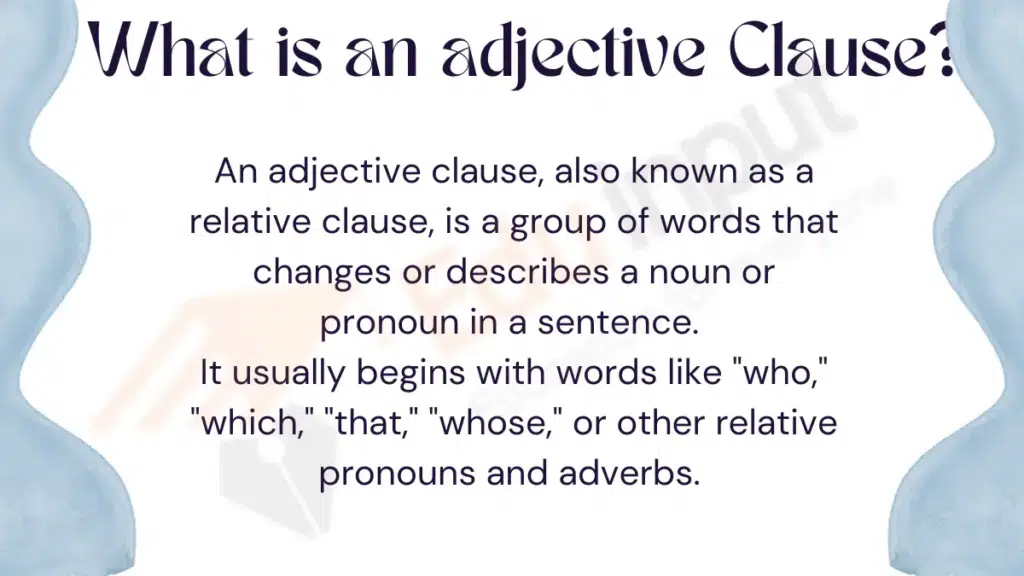
An adjective clause, also known as a relative clause, is a group of words that changes or describes a noun or pronoun in a sentence. It usually begins with words like “who,” “which,” “that,” “whose,” or other relative pronouns and adverbs.
The purpose of an adjective clause can be either to provide additional information in a descriptive way, as in “John, who often tells fibs,” or to narrow down and limit the meaning, as in “boys who tell fibs.”
According to the Oxford Learner’s Dictionary, a relative clause refers to something mentioned earlier in a sentence, another sentence, or a part of a sentence.
Forming and Using Adjective Clauses
Using adjective clauses becomes easy once you understand what they include and how they’re made. First off, remember that adjective clauses are always dependent clauses and usually come after the subject or object in a sentence.
Now, let’s break down the structure of an adjective clause in simple terms. It starts with words like “who,” “that,” “which,” “whose,” and so on, known as relative pronouns. This part comes right after the noun or noun phrase it’s giving more information about. After the relative pronoun, you’ll find either a noun or a verb. If there’s a noun/noun phrase/pronoun after the relative pronoun, there should also be a verb. If a verb follows the relative pronoun, then an adjective typically comes next. So, it’s like a little group of words that adds details, and once you get the hang of it, using adjective clauses becomes quite straightforward!
Types of Adjective Clauses
Adjective clauses can be categorized into two types based on their role in a sentence.
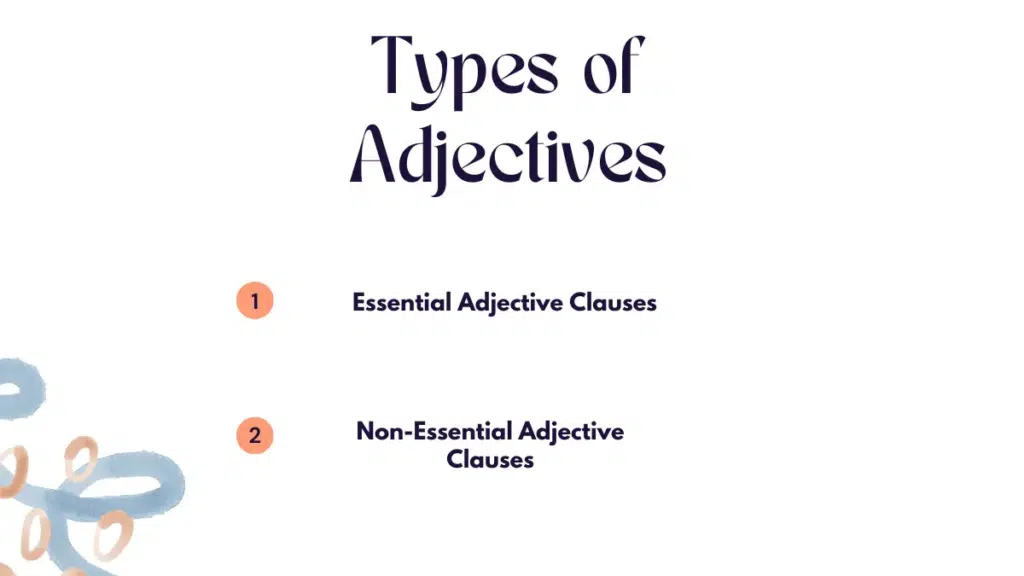
- Essential Adjective Clauses
- Non-Essential Adjective Clauses
Here is the detail of these two clauses.
1: Essential Adjective Clause
An essential adjective clause, as the name implies, is necessary for the sentence to make sense. It is an integral part of the sentence, and its description is crucial for conveying meaning. Therefore, it cannot be omitted from the sentence. No specific punctuation marks are used to separate the essential clause from the rest of the sentence.
Example: “The car that needs repairs is in the garage.”
2: Non-Essential Adjective Clause
In contrast to essential adjective clauses, a non-essential adjective clause offers extra details about the noun but is not central to the sentence’s meaning. Even if removed, these clauses don’t impact the completeness of the sentence. Such clauses are set off by commas or brackets to distinguish them from the rest of the sentence.
Example: “My sister, who lives in Paris, is coming to visit.”
Difference between an Adjective, an Adjective Phrase and an Adjective Clause
| Feature | Adjective | Adjective Phrase | Adjective Clause |
| Definition | A word that modifies a noun or pronoun. | A group of words acting as a single adjective. | A dependent clause that functions as an adjective |
| Example | Happy, blue, tall | Very confident in public speaking. | Who always arrives early to the meetings |
| Function | Modifies a noun directly. | Modifies a noun, usually as a group of words. | Modifies a noun and functions as part of a sentence |
| Independence | Can stand alone. | Can stand alone or be part of a sentence. | Cannot stand alone; dependent on a main clause |
| Structure | Single word. | Group of words. | Group of words containing a subject and a verb |
| Connection to Noun | Directly connected to the noun it modifies. | Connected to the noun it modifies, but as a group. | Connected to the noun it modifies, embedded within a sentence |
| Punctuation | No specific punctuation required. | No specific punctuation required; can use commas for emphasis. | Usually introduced by a relative pronoun or adverb; set off by commas. |
Examples of Adjective Clauses
- Defining Adjective Clause
- The book that is on the table belongs to Sarah.
- The person who called you is waiting outside.
- Non-defining Adjective Clause
- My brother, who lives in London, is coming to visit.
- The Eiffel Tower, which is in Paris, is a famous landmark.
- Adjective Clause with Possessive
- I know a girl whose brother is a famous actor.
- The house whose roof was damaged in the storm needs repairs.
- Adjective Clause with Time
- I remember the day when we first met.
- This is the reason why I am late.
- Adjective Clause with Place
- I visited the city where I was born.
- The park where we had our picnic was beautiful.
- Adjective Clause with Reason
- She explained the reason why she couldn’t come.
- The project failed due to reasons that were beyond our control.

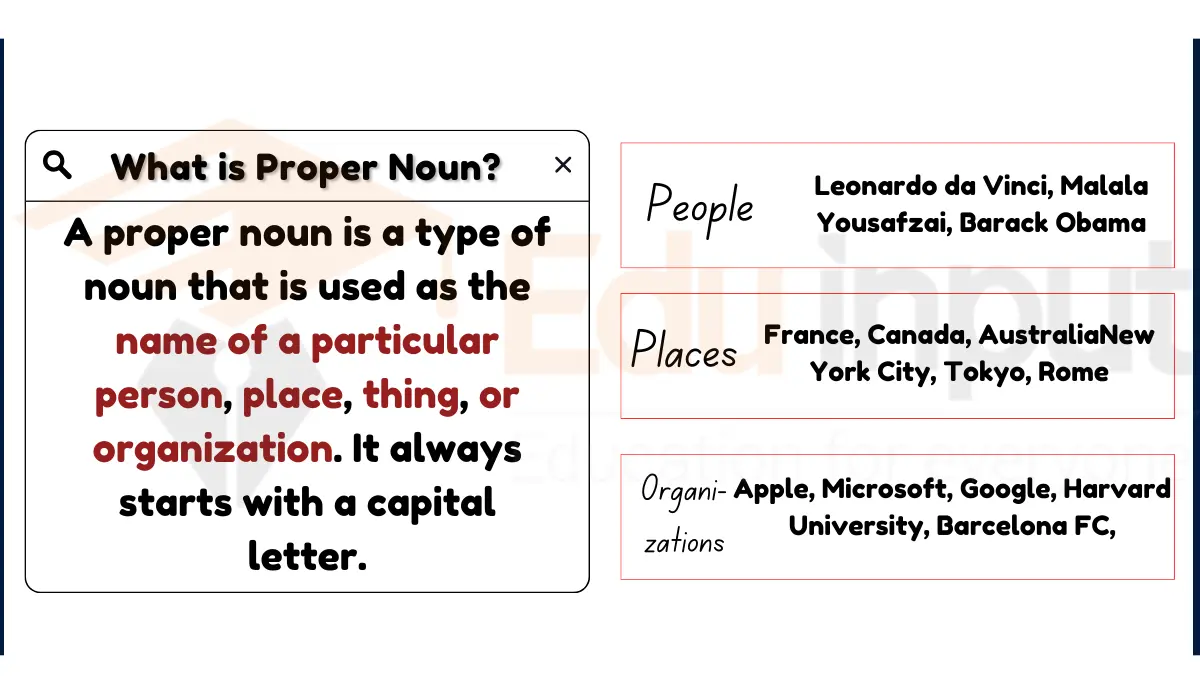
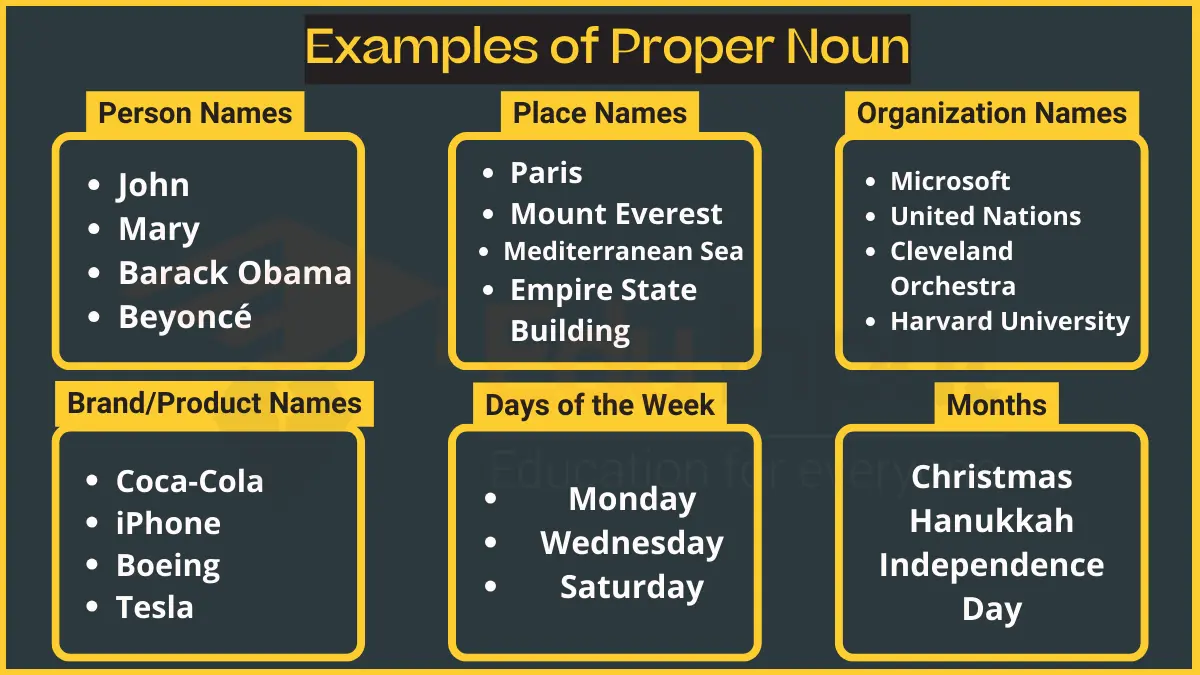
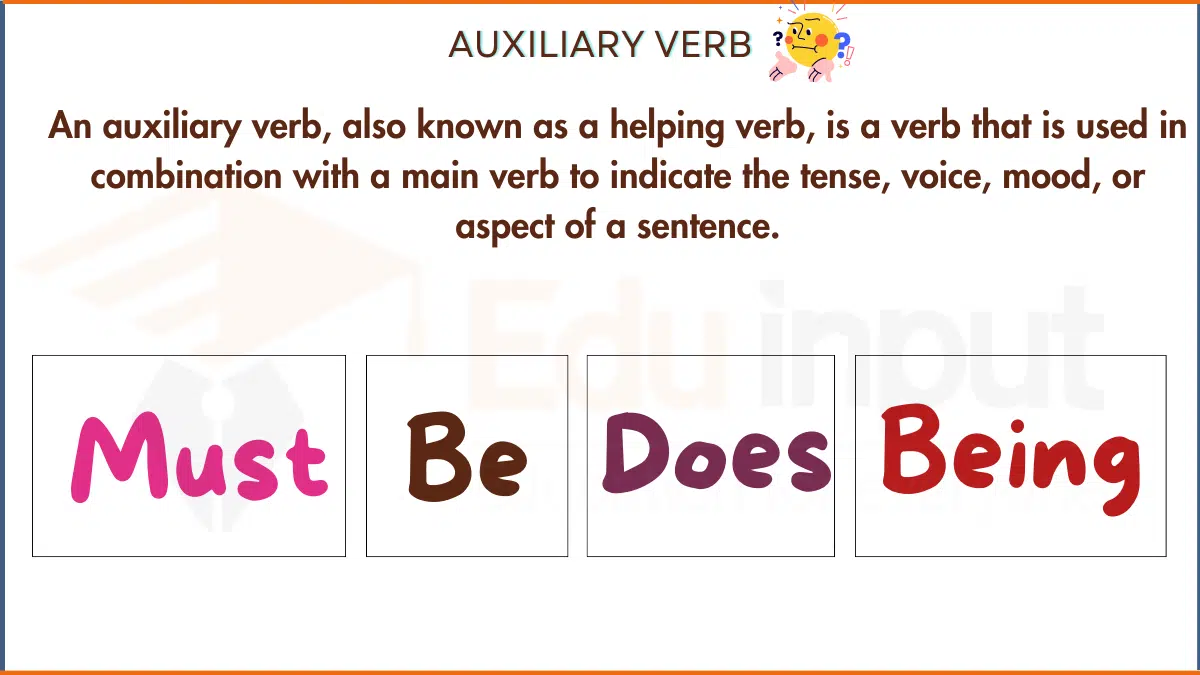
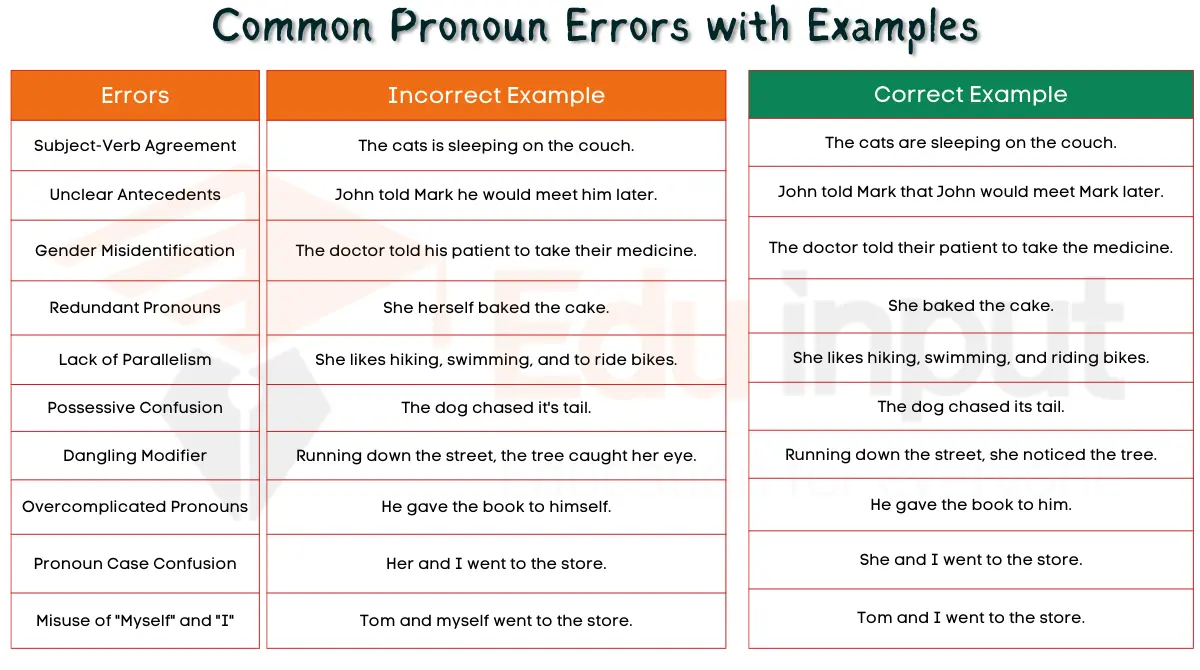


Leave a Reply